Why doesn’t fantasy sell in Japan?
“What? Doesn’t it?”
Nope. Not unless you count “historical” novels purporting to portray the Edo era, in which case, maybe, but that’s a different blog. We’re talking about real fantasy. Heroes, heroines, swords and horses, castles, kingdoms in jeopardy, magic magic magic. Portal fantasies grandfathered in.
“But, but fantasy is huge in Japan. What about Harry Potter?(1) Uh, Hayao Miyazaki?(2) The Lord of the Rings?(3) A Game of Thrones?(4) Haruki Murakami!(5)”
Let’s do a quick comparison, courtesy of Wikipedia. Fantasy dominates the ranks of the worldwide bestsellers of all time. But the equivalent Japanese list? Excluding Harry Potter, we’re left to decide whether The Very Hungry Caterpillar is fantasy or not. If it isn’t, we’re down to one entry: The Little Prince. The rest of this list is heavy on self-help, spiced with a couple of romances. The brilliant Japan Sinks squeaks in at No. 31. That’s science fiction, though; we hope and pray.
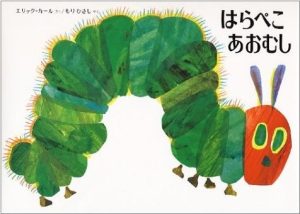
It’s bizarre. In a country this maddened, obsessed, saturated by the fantastic, where are the fantasy novels? Perhaps the question is its own answer, but this sheds some light on the situation. It’s a top 10 list of “Fantasy Novels Worth Rereading,” as picked by the Nikkei Keizai Shimbun, which is about as mainstream as it gets. The lede is worth translating:
Fantasy novels give you the feeling of having travelled to a faraway world. We asked experts to recommend works that not only children but even grown-ups will want to reread.
Fantasy novels generally describe worlds where characters use magic, possess superhuman powers, or experience other phenomena that could never occur in real life.
Among works from around the world, our list includes two Japanese series and one Japanese standalone novel …
I’d like to bring out a few points here. First, the editors find it necessary to explain what fantasy novels are. Second, the assumption is that fantasy novels are for children. And third—perhaps most importantly—seven out of ten novels on the list are by non-Japanese authors.
Here’s the full list, by the way, in descending order of excellence according to the Nikkei Keizai Shimbun:

1. Guardian series, Nahoko Uehashi
2. Tom’s Midnight Garden, Philippa Pearce
3. Krabat, Otfried Preussler
4. Earthsea, Ursula K. Le Guin
5. The Hobbit, J.R.R. Tolkien
6. The Lord of the Rings, J.R.R. Tolkien
7. Momo, Michael Ende
8. The Chronicles of Narnia, C.S. Lewis
9. The Jade Trilogy, Noriko Ogiwara
10. Nifunkan no Bouken [Two-Minute Adventure], Jun Ogata
Now, the sole and lasting rationale for publishing top ten lists of anything is so that people can grumble about them. I’m sure the Nikkei Keizai Shimbun’s editors (and their taste-challenged ‘experts’) know this. So we’ll just skip the part where I question the objectivity of anyone who doesn’t start their top ten list of fantasy novels with LOTR, even though I quite enjoyed Philippa Pearce’s books as a preteen, but the best one was definitely A Dog So Small, and, and, who on earth picks Momo over The Neverending Story, and, er, OK. Moving right along.
Let’s get back to that statistic: seven out of ten novels on this list are by foreign authors. And six out of ten are translated from English.
This actually stands to reason if you think about it. The Anglosphere is virtually self-sufficient in literature. Most of us reading this blog would probably populate our entire top ten lists with novels written in English, and be justified in so doing (though vulnerable to charges of a want of sophistication). Lesser languages necessarily rely to some extent on imports.
Japanese is the ninth most-spoken language out of all the world’s thousands. I love this statistic—no Japanese person I drop it on ever believes it until they get on Wikipedia and confirm it for themselves. But there just aren’t ever going to be as many great novels written in languages with fewer writers and readers to begin with.(6)
So the Japanese LOTR, the Japanese Chronicles of Narnia, the Japanese ASOIAF haven’t been written. And probably never will be: one of the crushingly sad things about globalization is that if you import wheels, people are disincentivized to reinvent the wheel for themselves—creativity stifled by sufficiency, originality smothered by second-hand ideas. Are there any really original Japanese fantasy novels within the genre framework imported from the West? That’s a subject for another day. But the odds were against it, given that fantasy novels translated into Japanese, EFHP(7), as we have seen, don’t sell. Something there just isn’t striking a chord with Japanese readers outside a small and incredibly worthy fandom.
The reason probably lurks in translation issues. Good translation is hard, no matter what the language. English and Japanese are about as far apart as it’s possible to get. I’m a translator as well as a writer, and I’ve struggled with this cross for years: no matter how good you are, no matter how good the source matter is, the original sense is never going to get through. The best solution is to accept that the translated work will be its own new thing, and write it well, in a style suited to the soul of the original. But few and far between are the translators good enough at their own language to do this, and equally few are the editors prepared to let them. So many if not most novels translated from English into Japanese appear to readers to be fairly crap, because the translators are, or because they weren’t given a free hand and enough time to do their work well.
No wonder they don’t sell, eh?

There’s more to it than this, of course. There’s the light novel problem—look for a future blog on this—and the “fantasy is for kids” problem. But beyond that, Japanese unresponsiveness to the epic fantasy paradigm may be rooted in the recentness of Japanese medieval history. The equivalent age of heroes, heroines, swords, horses, castles, victories and defeats and bitter, bitter betrayals, fairies and magic and partisan gods—it wasn’t a thousand years ago. It was as few as three hundred years ago. The Japanese haven’t yet forgotten what it was really like.
***
1. Sui generis.
2. That’s anime.
3. No one had read it before the movies came out, and few have now.
4. Not selling. But! Japanese premium broadcaster Star Channel started showing the HBO series in January 2013. Fingers crossed.
5. Ha ha, Haruki Murakami doesn’t write fantasy, silly.
6. You explain the Russians. My explanation is Act of God.
7. We need a new internet abbreviation—EFHP, Except For Harry Potter—to save us typing it out every time.



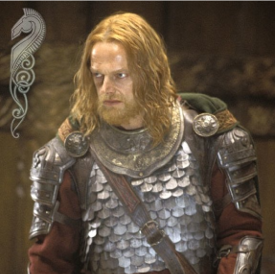


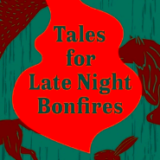
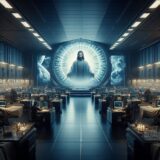
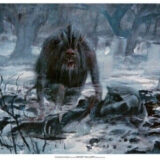

It's interesting…fantasy is a HUGE draw in the animanga crowd, though epic/high fantasy is not as common. There's one series, Record of Lodoss War, that is actually based on a tabletop RPG, and is the closest thing I can think of that mirrors our idea of epic fantasy.
I think that the recent history issue is definitely a huge part of it. But I also think that maybe the idea of an epic is also different from a cultural perspective? The Japanese mode of storytelling, in my experience (which is chiefly manga, I won't even lie), focuses on one or two major plot points or characters. Epic fantasy (which I don't read myself, so this might be totally wrong) gets very involved with world-building and lineages…it's very bogged-down stuff. Perhaps this doesn't appeal to a Japanese sense of story?
Also, we picture dragons and elves and magicians…but Japanese mythology is FULL of its own mythological creatures that do get incorporated into their stories. I think that maybe epic fantasy needs to have a different definition for a different culture. Says the girl who knows almost nothing about epic fantasy, haha. Just had to put in my two cents.
Also, not quite on topic, but I'm under the impression that Neil Gaiman is quite popular in Japan. When I was there in 2007, I picked up a copy of "Good Omens" (co-authored by Terry Pratchett). Any idea if some of his more fantasy-based novels do well?
Thanks for the interesting post!
Morgana, I'm going to have to find out more about "Record of Lodoss War"! It sounds like it might be the closest thing out there to that elusive beast, the Japanese epic fantasy. Also, are you familiar with the Twelve Kingdoms series? Originally "light novels," now an anime, I think. They are epic in terms of worldbuilding but the story is fragmentary and non-linear, jumping around in the history of the author's world. You may be right that this is a cultural issue. The canonical works of Japanese fiction in general tend to be episodic or even picaresque.
On the definition of epic fantasy and Neil Gaiman, more later … *hastily closes window as boss walks by*
You know, someone just mentioned Twelve Kingdoms in a comment on my post, as well! I think I've heard the name in passing, but I haven't investigated it. Perhaps I should, now that it's come up twice in a short period of time!
Exactly, Michael, exactly. I think the Japanese medieval era is still too close to be romanticized as we do with our own. The focus on the future is precisely a sign that Japan is still in flight from its feudal past, rather than slowing down to regard it nostalgically.
Chris, it's not only epic fantasy that gets the cold shoulder here but also urban fantasy (the sexy werewolf / sparkly vampire stuff); for which God be praised. As a sweeping generalization the genre of fantasy that does best is the "misunderstood secret superhero with super-special powers" stuff, cf Harry Potter. I am no expert on manga and anime but a lot of it falls into that category.
Ghosts and related supernatural horrors, on the other hand, are pretty much the mainstay of Japanese genre fiction. I had a think about that recently and cobbled my musings into an upcoming blog post, "The Galapagos Frontier Theory." I would be honored if you stopped by and shared your own opinions on the subject!
Hi Felicity. Sorry if this is major blog Necromancy, but the spirits told me the ritual…ok sorry, ahem, stepping out of character.
I strikes me that you are ignoring (not maliciously of course) a major source of Japanese fantasy, which is videogames. Now I realize that videogames are not quite the same as literature, but if we are talking about fantasy as a genre, and especially high fantasy, I think videogames have just as much (if not more) validity in this realm than anime. Several sources come to mind, including Monster Hunter, Final Fantasy (D’oh!), and Fire Emblem, but the one that really sticks out to me is the Legend of Zelda.
Without giving a description I think the Legend of Zelda games are a perfect example of High Fantasy. The world may not fit the typical definition of High Fantasy but I think it works technically. It is character-focused for sure, but the world is all plot-driven, the saga spans a huge amount of time and concentrates on aspects related to the growth of nations, national heroes, legends, and so on, all of which are part of what ‘Epic’ is by definition.
That said I do find it strange that fantasy in general, as PURE fantasy (not Magical Realism, like HP, or Techno-Fantasy, like Sword Art Online) has not caught on in Japan. I agree that the feudalism-era having just ended may be part of it but I think it goes beyond that: first though I think it is important to consider the fact that Japanese in general don’t do much novel reading, not in the ‘go to Barnes and Noble and pick-out a fantasy novel’ sense. There’s manga but that’s a slightly different art form with its own length/characterization/etc…requirements. However, I’ll say that most manga that is not purely ‘real world’ has some aspects of fantasy, and there is a ton of pure fantasy manga. And anime can be included in this list.
What I would be interested in knowing is why the Legend of Zelda is so completely set-apart? It is probably the most purely fantasy story that I have encountered in Japan and the best representation of a ‘by the natives for the natives’ story. It has all the trappings of medieval European fantasy: knights, castles, fairies, princesses, dragons, demons, etc…and yet it is all done through a decidedly Japanese tone. Even the concept of the ‘everyman’ hero Link strikes me as strangely European in its sensibility. But it is the only thing I can think of like it. Why is that? Why has this one succeeded so well when others have not?
And then the next question, and one I’d be interested in seeing a discussion of, is “what would a Japanese High Fantasy series look like? What would a Japanese Game of Thrones or a Japanese Lord of the Rings look like? And what will it take to get those made?”
As a writer myself I’ve made it my goal to introduce more of standard fantasy into the Japanese world, mainly through manga, but I’ve encountered the “it hasn’t been done before so you’ll be the first guinea pig” kind of mindset a lot. Which certainly doesn’t help my self-confidence, hehe… :-\
Thanks for the comment, Mark! You are absolutely correct: I did leave video games out of the discussion, for the reason that I know zilch about them 🙂 I always thought the Legend of Zelda was a Super Mario Bros spin-off. As you describe it, it does sound epic.
What would a Japanese ASIOAF or LOTR look like? Excellent questions. Filing those away for a future post.
I suspect that one reason why Fantasy isn't as big there is that Japan as a culture is incredibly focuses on the future, and progress. The samurai class was actually only disbanded something like a hundred years ago, and Japan is very close to its feudalistic roots, while ours are more distant.
While you might think that this would mean it would be easier to remember, it's the opposite because it means they don't want romanticize it the same way we do. They don't remember it as a romantic time of conflict, they are more likely to remember the starvation and plagues.
After World War II, the entire country had to race forward to adapt to the world as it is now, and that took a great deal of effort and motivation on the part of the population. They've spent all this energy modernizing, so it effects their imagination.
One of the things about Japan that I read about recently was that robots were being developed as "pets" to provide companionship for the elderly, and were being made to look like furry animals similar to a dog or cat. I doubt this would work so well in the West, but in Japan they are very comfortable with the idea of robots, or automation in general.
It truly is a different culture.
Thanks for the really fascinating post! Does Japan's lack of epic fantasy or its perception as children's literature extend into other formats as well, particularly manga and video games? I know that there is plenty of anime (in the US, the best known are probably Studio Ghibli's various films) which incorporates fantastic themes and imagery, but usually not in an epic mode. Is it just epic fantasy that runs into these issues, or does the same hold for other modes of fantasy or horror as well?
Astrid, I think you're right that most people would prefer to read books based on their own culture. But why is there no epic fantasy based on Japanese culture, when it is so rich in heroes, heroines, castles, swords & horses, magic magic magic etc? It would seem to be a natural direction for writers to go in but by and large they haven't. As for Earthsea I suspect it wouldn't have featured on the list before Studio Ghibli made a film loosely (very very loosely) based on it. Ghibli picks up all kinds of good things.
Kieran, yeah definitely, LOTR is the default choice for "No.1 fantasy of all time hoorah!" And it is refreshing to see alternate candidates (but Philippa Pearce? Boggle boggle). I just happen to be one of those sad people who believes LOTR absolutely is the best fantasy novel ever 😀
I’m currently working on a Japanese Mythology inspired novel. Can’t wait to get it done.
Another reason might also be that Japanese people may prefer to read books about Japanese people – or at least books based on their own culture, such as the books about the Edo era which you cite – rather than books which largely feature Caucasian people in a European-culture-derived context. Perhaps another reason why the Earthsea books are so high up on the list – at least they break away from that particular fantasy stereotype.
Yeah, is good to see Tolkien not being at the top of the list. While LOTR is good, it isn't the best that's out there – the reason it's always near the top of the top 10 is because it's the great grandaddy of fantasy novels, and is probably the first thing people think about when they think of the genre (and thus the first thing they say when asked "what's your top fantasy novel?"). Is also an element of "peer pressure", everyone says LOTR because, well, everyone knows that everyone else loves LOTR and no-one wants to be the one that stands out from the crowd. Is similar to asking a musician what their top 10 most influential albums are, chances are "Pet Sounds" by the Beach Boys will be in there. Is not that it's the best, that there hasn't been better since it, but it's sort of the default choice.
I'd pick Momo over the Neverending story anytime, and I think both Krabat and Earthsea are very deserving of leading the list, kind of refreshing NOT to see Tolkien at the top of it for once. I haven't read Philippa Pearce.